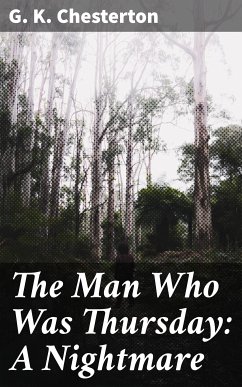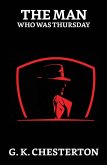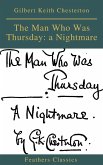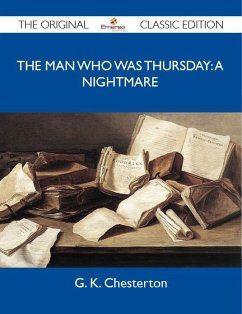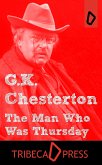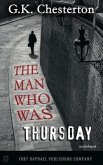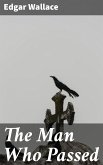In "The Man Who Was Thursday: A Nightmare," G. K. Chesterton weaves a thrilling narrative that defies conventional categorization as it oscillates between philosophical discourse, political satire, and absurdist comedy. Set against the backdrop of a surreal, anarchic London, the novel follows Gabriel Syme, a poet and detective who infiltrates a secret council of anarchists. Chesterton's literary style brilliantly marries witty dialogue with a dreamlike structure, creating an atmosphere that is both whimsical and menacing, reminiscent of his contemporaries in the Edwardian period. The text serves as a profound exploration of identity, faith, and the nature of evil, reflecting the anxieties of a society grappling with technological advancement and existential uncertainty. G. K. Chesterton (1874-1936) was a renowned English writer, philosopher, and critic whose formidable intellect and love for paradox often infused his works with a distinctive charm. Chesterton's own diverse interests'Äîfrom theology to political theory'Äîshaped his ability to craft narratives that challenge societal norms while delving into profound philosophical inquiries. His experiences as a journalist and lecturer also influenced his acute perception of the human condition, which is vividly illustrated in this novel. This novel is highly recommended for readers seeking a thought-provoking and intellectually stimulating journey that blends humor with profound philosophical inquiry. Chesterton's mastery in constructing multilayered narratives will resonate with those interested in the complexities of human nature, making "The Man Who Was Thursday" an essential read for anyone who appreciates literature that pushes the boundaries of conventional storytelling.
Dieser Download kann aus rechtlichen Gründen nur mit Rechnungsadresse in A, B, BG, CY, CZ, D, DK, EW, E, FIN, F, GR, H, IRL, I, LT, L, LR, M, NL, PL, P, R, S, SLO, SK ausgeliefert werden.

